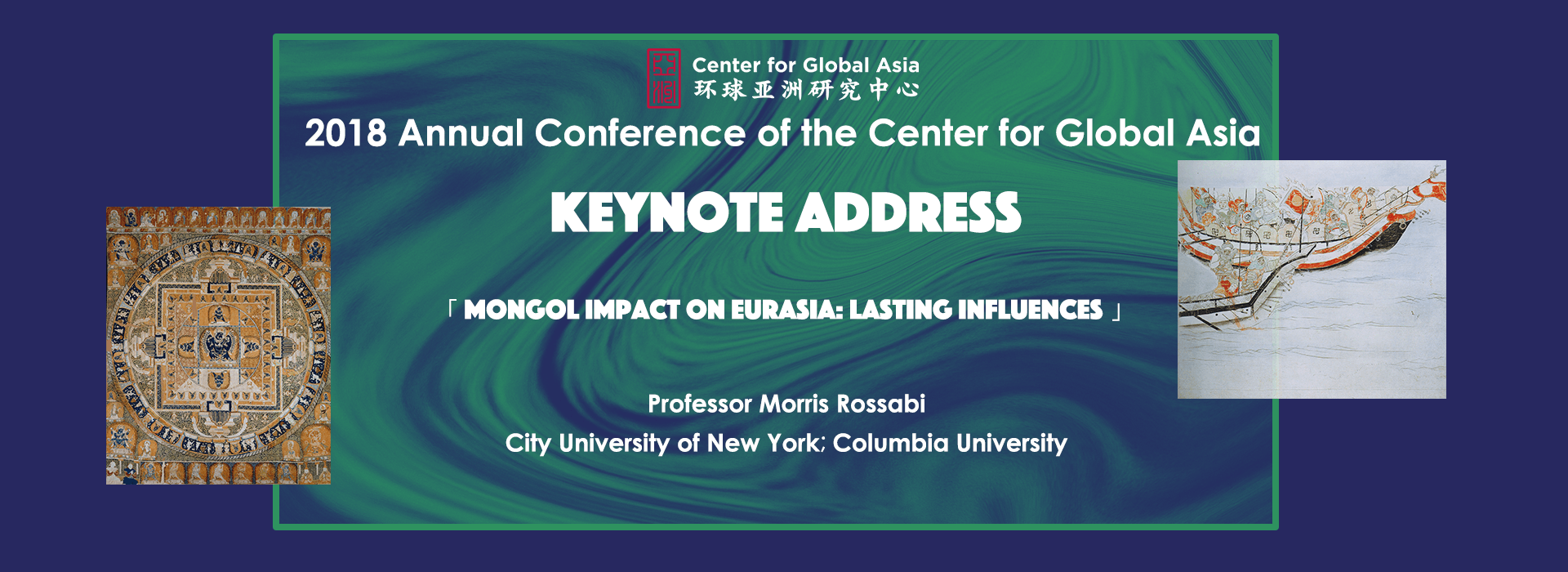CONTACT US
Email: shanghai.cga@nyu.edu
Phone Number: +86 (21) 20595043
WeChat: NYUShanghaiCGA
Address:
Room W822, 567 West Yangsi Road,
Pudong New Area, Shanghai, China

© 2024 All Rights Reserved

2018 Annual Conference of Center for Global Asia
Co-sponsored by Shanghai Academy of Social Science, Fudan University, Henry Luce Foundation, New York University, and NYU Shanghai Office of External & Academic Events
NYU Shanghai’s Center for Global Asia hosted its third annual conference from August 20–22, 2018. The theme of the conference – Eurasian Connections – provided an intellectual framework to gather a number of scholars whose research concentrates on the economic, religious, cultural, and political processes linking disparate, distant regions together through complex forms of connectivity and circulation. After a generous and enthusiastic opening to the conference delivered by NYU Shanghai’s Vice Chancellor Jeffrey Lehman, over thirty scholars from Austria, Japan, the United Arab Emirates, the United Kingdom, and the United States, as well as researchers from around China, convened on the fifteenth floor of 1555 Century Avenue to share their individual projects and their collective interests.
The remarkable range of themes, regions, and time periods covered during the three-day conference highlighted the diverse historical and anthropological approaches to understanding the trans-regional and trans-national networks that crisscross Eurasia. Some central topics that emerged included the role played by commodities and material culture in bridging geographic distances, such as flowers grown in China for global markets in the twenty-first century, Chinese tea consumed in nineteenth-century England and Russia, or Asian spices circulating in the eastern Mediterranean during the late Roman Empire. A related area of inquiry included the merchants and traders responsible for the movement of such commodities across the Eurasian territorial expanse, including Afghan traders living in Yiwu, China or Sikh traders operating in the Indo-Iranian borderlands. But it was not just people and material objects that moved across vast distances: ideas also traveled along the routes connecting various Asia to Europe, including religious beliefs and scientific, technological and medical knowledge. The environmental factors influencing life across Eurasia were also add- ressed, whether flooding in contemporary Thailand or alternative modes of ecological conservation in nineteenth-century Yunnan. The conference participants demonstrated that the flows of people, objects, and ideas were multi-directional, thus challenging traditional understandings of geopolitical centers and peripheries with a much more complex understanding of Eurasian geography. The keynote address delivered by Professor Morris Rossabi (City University of New York and Columbia University) also made this decisively clear, in its extensive explication of the multiple ways that the Mongol Empire created lasting networks of commercial, religious, cultural, and technological exchange across Eurasia, which not only influenced the immediate political successors in Central and East Asia, including the Ming Dynasty in China, but also helped constitute powerful historical myths about Chinggis Khan that continue to have political meaning in Mongolia, Central Asia, and the rest of the world today.
The three-day conference could not have been such a success without the financial and institutional support of NYU Shanghai’s Center for Global Asia, NYU Shanghai External and Academic Events, New York University, NYU Abu Dhabi, the Henry Luce Foundation, Fudan University, and the Shanghai Academy of Social Sciences. The Fourth Annual Conference of the Center for Global Asia will explore the theme of Asian Migration and will take place August 26–28, 2019 at NYU Shanghai.
Read more on the 2018 Annual Conference Website: https://cga.shanghai.nyu.edu/2018-annual-conference/
Email: shanghai.cga@nyu.edu
Phone Number: +86 (21) 20595043
WeChat: NYUShanghaiCGA
Address:
Room W822, 567 West Yangsi Road,
Pudong New Area, Shanghai, China

© 2024 All Rights Reserved